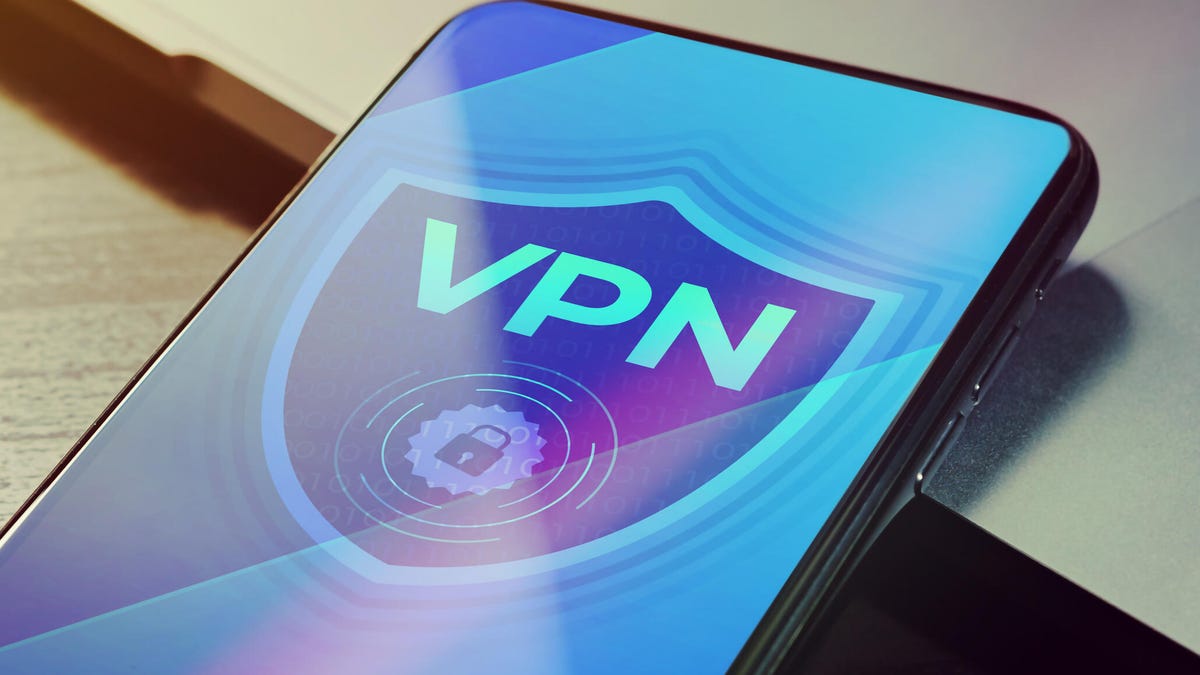Technologies
Waiting for a Recession to Buy a Home? This Realtor Weighs In
Here are the most important things to know about mortgage rates during an economic downturn.

The economy’s been all over the place lately. Inflation might be coming down, but rising tariffs, stock market dips and global uncertainty are keeping everyone on edge. With mortgage rates bouncing around, homebuyers are asking me, Will housing become more affordable in a recession?
After more than 20 years in real estate, I’ve seen my share of ups and downs, from boom times to full-blown crashes, like 2008. The truth? There’s always opportunity, even in a downturn. The market doesn’t stop during a recession. It just shifts. And if you’re ready, that shift can actually work in your favor.
TAX SOFTWARE DEALS OF THE WEEK
-
$0 (save $0)
-
$56 (save $24)
-
$83 (save $32)
-
$28 (save $10)
Let’s break down what a recession really means for mortgage rates, home prices and your opportunity to buy a home.
Is a recession on its way?
There are plenty of recession warning signs right now. Layoffs are picking up, GDP is slowing and consumer confidence has dipped. Paychecks aren’t going as far, and retirement accounts are taking hits.
While less disposable income and tighter budgets point to a general slowdown in the economy, technically, we’re not in a recession. Not yet. It would take two consecutive quarters of negative GDP growth to hit that definition. But for a lot of folks, it already feels like one.
High prices and inflation aren’t the same thing. Even if the inflation rate isn’t going up, the cost of everyday goods and services is still high, and budgets are getting hammered. When folks feel the squeeze every time they swipe a card at the grocery store, it shapes how they think about making huge purchases like a home.
Will the Fed cut interest rates?
Borrowing costs have been expensive for the last several years, making households and businesses wary about taking out loans. The Federal Reserve will probably cut interest rates again later this year, eventually making financing cheaper.
But those cuts won’t come for a while. The Fed’s a bit stuck right now. The economy’s losing steam and inflation is cooling, but not fast enough. The central bank is being cautious about shifting policy, especially with tariffs driving prices back up.
Though lower interest rates will eventually impact the housing market, the Fed doesn’t directly control mortgage rates. Mortgage rates move based on many factors, such as the bond market and investor expectations. Even when the Fed starts cutting rates again, don’t expect mortgage rates to drop like crazy. Many of those expected cuts are already priced into the market.
Will mortgage rates drop in a recession?
Mortgage rates often fall during an economic depression, as we saw recently in 2020 and earlier in 2008. Lower rates help boost the economy, and the Fed knows that.
But this time around, things are messier. There’s volatility everywhere. Even though rates could drop, they might also shoot back up with any good economic news. Like many experts in the real estate industry, I think average rates for a 30-year fixed mortgage will hover between 6.5% to 7.25% for most of 2025, with weekly jumps and dips in that range.
If you’re holding out for 4% or 5% mortgage rates, you may be waiting longer than you’d like. It’s going to take far more negative economic news to see rates fall in a big way.
It’s also worth pointing out that your personal financial situation matters more than your interest rate. If you’ve got a solid stream of income and a long-term plan for paying off a home loan, waiting for a perfect rate might not be worth it.
Will home prices go down in a recession?
Home prices are the big question. And the answer is… they won’t likely go down in a big way.
Historically, home prices don’t fall much during recessions. The 2008 housing crash was the exception, not the rule. What we’ll probably see is slower appreciation or small dips in certain markets, especially in areas hit by higher insurance costs, taxes or natural disasters (Florida, Texas and Louisiana come to mind).
But nationwide, we’re still dealing with low inventory. Until that changes, it’s hard to see prices dropping dramatically. Plus, given high construction and labor costs, it’s clear home prices aren’t falling off a cliff anytime soon.
Is it cheaper to buy a home during a recession?
If you’re financially stable, it could be cheaper to buy a home in a recession. You might find better deals, less competition and more negotiating power. But if lending tightens, getting a loan could get tougher. That’s something we’re already starting to see with condos and certain types of properties.
And don’t overlook the «wealth effect.» When people feel wealthier, like when their stock portfolio or home value is up, they’re more confident making big purchases.
But when those numbers start to slide, or there’s even a threat of job insecurity, even if nothing’s really changed day to day, people pull back. That affects buyer activity in a big way. If someone just lost $20,000 in their 401(k), they’re not rushing to get a new mortgage.
What’s the best time to buy a home?
The best time to buy a home is when it makes sense for you. If you’ve got a steady income and strong credit, and you’re ready to settle down, a recession could actually work in your favor.
Just don’t wait around for some magical «perfect time» to take out a mortgage. The green light most people are waiting for doesn’t exist. But if you prepare, stay informed and work with the right team, you can make a smart move no matter what the economy’s doing.
Technologies
Today’s NYT Mini Crossword Answers for Saturday, Feb. 21
Here are the answers for The New York Times Mini Crossword for Feb. 21.

Looking for the most recent Mini Crossword answer? Click here for today’s Mini Crossword hints, as well as our daily answers and hints for The New York Times Wordle, Strands, Connections and Connections: Sports Edition puzzles.
Need some help with today’s Mini Crossword? It’s the long Saturday version, and some of the clues are stumpers. I was really thrown by 10-Across. Read on for all the answers. And if you could use some hints and guidance for daily solving, check out our Mini Crossword tips.
If you’re looking for today’s Wordle, Connections, Connections: Sports Edition and Strands answers, you can visit CNET’s NYT puzzle hints page.
Read more: Tips and Tricks for Solving The New York Times Mini Crossword
Let’s get to those Mini Crossword clues and answers.
Mini across clues and answers
1A clue: «Jersey Shore» channel
Answer: MTV
4A clue: «___ Knows» (rhyming ad slogan)
Answer: LOWES
6A clue: Second-best-selling female musician of all time, behind Taylor Swift
Answer: MADONNA
8A clue: Whiskey grain
Answer: RYE
9A clue: Dreaded workday: Abbr.
Answer: MON
10A clue: Backfiring blunder, in modern lingo
Answer: SELFOWN
12A clue: Lengthy sheet for a complicated board game, perhaps
Answer: RULES
13A clue: Subtle «Yes»
Answer: NOD
Mini down clues and answers
1D clue: In which high schoolers might role-play as ambassadors
Answer: MODELUN
2D clue: This clue number
Answer: TWO
3D clue: Paid via app, perhaps
Answer: VENMOED
4D clue: Coat of paint
Answer: LAYER
5D clue: Falls in winter, say
Answer: SNOWS
6D clue: Married title
Answer: MRS
7D clue: ___ Arbor, Mich.
Answer: ANN
11D clue: Woman in Progressive ads
Answer: FLO
Technologies
Today’s NYT Connections: Sports Edition Hints and Answers for Feb. 21, #516
Here are hints and the answers for the NYT Connections: Sports Edition puzzle for Feb. 21, No. 516.

Looking for the most recent regular Connections answers? Click here for today’s Connections hints, as well as our daily answers and hints for The New York Times Mini Crossword, Wordle and Strands puzzles.
Today’s Connections: Sports Edition is a tough one. I actually thought the purple category, usually the most difficult, was the easiest of the four. If you’re struggling with today’s puzzle but still want to solve it, read on for hints and the answers.
Connections: Sports Edition is published by The Athletic, the subscription-based sports journalism site owned by The Times. It doesn’t appear in the NYT Games app, but it does in The Athletic’s own app. Or you can play it for free online.
Read more: NYT Connections: Sports Edition Puzzle Comes Out of Beta
Hints for today’s Connections: Sports Edition groups
Here are four hints for the groupings in today’s Connections: Sports Edition puzzle, ranked from the easiest yellow group to the tough (and sometimes bizarre) purple group.
Yellow group hint: Old Line State.
Green group hint: Hoops legend.
Blue group hint: Robert Redford movie.
Purple group hint: Vroom-vroom.
Answers for today’s Connections: Sports Edition groups
Yellow group: Maryland teams.
Green group: Shaquille O’Neal nicknames.
Blue group: Associated with «The Natural.»
Purple group: Sports that have a driver.
Read more: Wordle Cheat Sheet: Here Are the Most Popular Letters Used in English Words
What are today’s Connections: Sports Edition answers?
The yellow words in today’s Connections
The theme is Maryland teams. The four answers are Midshipmen, Orioles, Ravens and Terrapins.
The green words in today’s Connections
The theme is Shaquille O’Neal nicknames. The four answers are Big Aristotle, Diesel, Shaq and Superman.
The blue words in today’s Connections
The theme is associated with «The Natural.» The four answers are baseball, Hobbs, Knights and Wonderboy.
The purple words in today’s Connections
The theme is sports that have a driver. The four answers are bobsled, F1, golf and water polo.
Technologies
Wisconsin Reverses Decision to Ban VPNs in Age-Verification Bill
The law would have required websites to block VPN users from accessing «harmful material.»

Following a wave of criticism, Wisconsin lawmakers have decided not to include a ban on VPN services in their age-verification law, making its way through the state legislature.
Wisconsin Senate Bill 130 (and its sister Assembly Bill 105), introduced in March 2025, aims to prohibit businesses from «publishing or distributing material harmful to minors» unless there is a reasonable «method to verify the age of individuals attempting to access the website.»
One provision would have required businesses to bar people from accessing their sites via «a virtual private network system or virtual private network provider.»
A VPN lets you access the internet via an encrypted connection, enabling you to bypass firewalls and unblock geographically restricted websites and streaming content. While using a VPN, your IP address and physical location are masked, and your internet service provider doesn’t know which websites you visit.
Wisconsin state Sen. Van Wanggaard moved to delete that provision in the legislation, thereby releasing VPNs from any liability. The state assembly agreed to remove the VPN ban, and the bill now awaits Wisconsin Governor Tony Evers’s signature.
Rindala Alajaji, associate director of state affairs at the digital freedom nonprofit Electronic Frontier Foundation, says Wisconsin’s U-turn is «great news.»
«This shows the power of public advocacy and pushback,» Alajaji says. «Politicians heard the VPN users who shared their worries and fears, and the experts who explained how the ban wouldn’t work.»
Earlier this week, the EFF had written an open letter arguing that the draft laws did not «meaningfully advance the goal of keeping young people safe online.» The EFF said that blocking VPNs would harm many groups that rely on that software for private and secure internet connections, including «businesses, universities, journalists and ordinary citizens,» and that «many law enforcement professionals, veterans and small business owners rely on VPNs to safely use the internet.»
More from CNET: Best VPN Service for 2026: VPNs Tested by Our Experts
VPNs can also help you get around age-verification laws — for instance, if you live in a state or country that requires age verification to access certain material, you can use a VPN to make it look like you live elsewhere, thereby gaining access to that material. As age-restriction laws increase around the US, VPN use has also increased. However, many people are using free VPNs, which are fertile ground for cybercriminals.
In its letter to Wisconsin lawmakers prior to the reversal, the EFF argued that it is «unworkable» to require websites to block VPN users from accessing adult content. The EFF said such sites cannot «reliably determine» where a VPN customer lives — it could be any US state or even other countries.
«As a result, covered websites would face an impossible choice: either block all VPN users everywhere, disrupting access for millions of people nationwide, or cease offering services in Wisconsin altogether,» the EFF wrote.
Wisconsin is not the only state to consider VPN bans to prevent access to adult material. Last year, Michigan introduced the Anticorruption of Public Morals Act, which would ban all use of VPNs. If passed, it would force ISPs to detect and block VPN usage and also ban the sale of VPNs in the state. Fines could reach $500,000.
-

 Technologies3 года ago
Technologies3 года agoTech Companies Need to Be Held Accountable for Security, Experts Say
-

 Technologies3 года ago
Technologies3 года agoBest Handheld Game Console in 2023
-

 Technologies3 года ago
Technologies3 года agoTighten Up Your VR Game With the Best Head Straps for Quest 2
-

 Technologies4 года ago
Technologies4 года agoBlack Friday 2021: The best deals on TVs, headphones, kitchenware, and more
-

 Technologies5 лет ago
Technologies5 лет agoGoogle to require vaccinations as Silicon Valley rethinks return-to-office policies
-

 Technologies5 лет ago
Technologies5 лет agoVerum, Wickr and Threema: next generation secured messengers
-

 Technologies4 года ago
Technologies4 года agoOlivia Harlan Dekker for Verum Messenger
-

 Technologies4 года ago
Technologies4 года agoiPhone 13 event: How to watch Apple’s big announcement tomorrow
